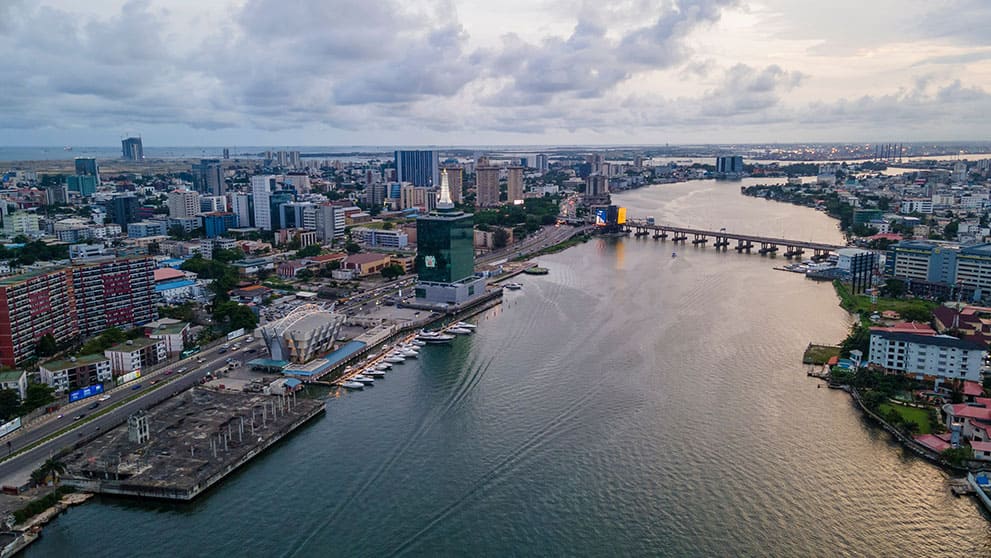In the ever-changing seas of business, understanding the economic tides is key for Nigerian SMEs aiming to sail towards growth and success.
This guide is here to help budding entrepreneurs navigate the waves of economic factors, providing strategies to adjust to shifts, and highlighting the importance of planning ahead to steer clear of risks and catch the winds of opportunities.
Understanding economic factors
In Nigeria, economic indicators like inflation, interest rates, and exchange rates hold sway over businesses. Recent data from the National Bureau of Statistics (NBS) paints a picture of a high inflation rate at 28.92% in December 2023, signaling rough waters ahead with rising prices affecting consumer behavior and purchasing power. Such high inflation rates can rock the boats of SMEs, increasing costs for materials, utilities, and other essentials.
Similarly, interest rates, overseen by the Central Bank of Nigeria, directly impact borrowing costs for businesses. At 22.75% presently, these rates can make borrowing feel like navigating a rocky shoreline, influencing investment decisions and opportunities for expansion. Lower interest rates, however, can be like a gentle breeze, encouraging borrowing and fostering business growth.
Exchange rates are also vital, especially for businesses sailing in international waters. Changes in the Nigerian Naira against major currencies like the US Dollar and Euro can steer import costs, export competitiveness, and cross-border transactions. These currency fluctuations can make for choppy seas, introducing uncertainties that impact profit margins and strategic decision-making for businesses.
Regulatory Waters and Business Buoyancy
Navigating the regulatory ocean poses significant challenges for Nigerian small businesses. While regulations are necessary for ensuring smooth sailing, excessive bureaucracy often feels like a strong current dragging down business operations. Informal businesses, a significant portion of Nigeria's economy, often sail outside formal regulatory frameworks, leading to issues like tax evasion and unfair competition.
Regulatory bodies such as the Corporate Affairs Commission (CAC), the Federal Inland Revenue Service (FIRS), and the Standards Organisation of Nigeria (SON) serve as lighthouses guiding businesses through registration, taxation, and quality control. However, bureaucratic bottlenecks and inconsistent enforcement can feel like navigating through a dense fog, obscuring the path forward for businesses.
Adapting to Economic Swells
Diversify Revenue Streams: Explore new horizons and diversify your product offerings or target new markets to navigate economic storms in specific sectors.
Manage Cash Flow: Keep your ship afloat by maintaining robust cash flow management practices to ensure financial stability during rough seas. Keep a close eye on receivables and payables, and negotiate fair terms with suppliers and customers to keep your sails filled with wind.
Optimize Operational Efficiency: Trim your sails and streamline processes to enhance operational efficiency and minimize costs. Embrace technological innovations to automate routine tasks and increase productivity onboard.
Strengthen Customer Relationships: Keep your crew happy by prioritizing customer satisfaction and loyalty. Offer top-notch products and services, and build strong relationships with customers through personalized communication and loyalty programs.
Stay Informed and Seek Support: Keep an eye on the weather forecast by staying informed about economic trends and market developments. Lean on your crew and industry networks for guidance and support in navigating turbulent waters.

Plotting A Course for the Future
Anticipating economic trends and planning ahead is critical for Nigerian SMEs to thrive in an ever-changing business environment. By adopting a proactive approach, SMEs can position themselves for success and capitalise on emerging opportunities. Here are some tips for proactive planning:
- Conduct regular economic assessments: monitor key economic indicators relevant to your business and analyse their potential impact on your operations. Identify trends, opportunities, and threats to inform strategic decision-making.
- Scenario Planning: Develop contingency plans for various economic scenarios, such as recession, inflationary pressures, or currency fluctuations. Assess the potential risks and opportunities associated with each scenario and devise strategies to mitigate risks and capitalise on opportunities.
- Invest in Skills Development: Invest in continuous learning and skills development for yourself and your team to enhance adaptability and resilience in the face of economic changes. Stay updated on industry best practices, emerging technologies, and market trends to stay ahead of the curve.
- Build Financial Resilience: Establish financial reserves and contingency funds to weather economic downturns and unforeseen challenges. Maintain a healthy balance sheet, manage debt responsibly, and diversify investments to spread risk.
In conclusion, navigating the economic landscape is a complex yet essential aspect of running a successful SME in Nigeria. By understanding economic factors, adapting to changes, and planning proactively, Nigerian SMEs can mitigate risks, seize opportunities, and thrive in an ever-evolving business environment.












































